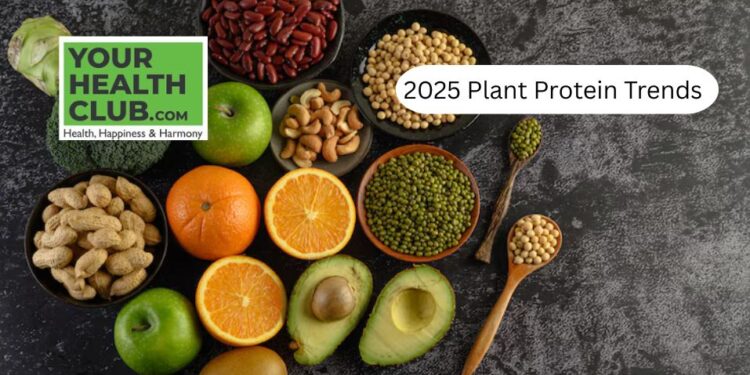As more people embrace healthier, sustainable lifestyles, plant-based protein has moved from a niche option to a mainstream staple. In 2025, this trend continues to evolve with innovative ingredients, better taste, and enhanced nutritional profiles. Whether you’re vegan, vegetarian, or simply looking to reduce your meat intake, the plant-protein space is full of exciting new options.
Let’s explore the latest trends redefining plant-based protein this year.
1. Clean Labels & Whole Food Sources
Consumers are now more conscious than ever of what goes into their food. In 2025, there’s a growing shift from heavily processed protein isolates to whole food-based sources like:
- Lentils
- Chickpeas
- Quinoa
- Pumpkin seeds
These options not only provide protein but also come packed with fiber, minerals, and antioxidants—offering a more complete nutrition profile.
2. Fermented Plant Proteins
Fermentation is being used to boost the digestibility and nutritional value of plant-based proteins. Fermented pea, soy, and rice proteins are easier on the gut and offer enhanced amino acid profiles. Plus, they often taste better and have fewer allergens.
3. Innovative Protein Blends
Rather than relying on a single source like soy or pea, brands are now blending multiple plant proteins to improve texture, flavor, and bioavailability. For example:
- Pea + rice + chia
- Fava bean + hemp
- Quinoa + mung bean
These blends are showing up in protein powders, bars, and even ready-to-drink shakes.
4. Functional Proteins with Added Benefits
2025’s plant proteins are more than just muscle fuel. Many new products are enriched with functional ingredients like:
- Probiotics for gut health
- Adaptogens for stress support
- Collagen-boosting compounds (from vegan sources)
This means you’re not just meeting protein goals—you’re enhancing overall well-being.
5. Sustainable and Local Sourcing
With climate concerns at the forefront, more companies are focusing on sustainably grown and locally sourced plant proteins. Crops like lupin, hemp, and fava beans are gaining popularity due to their low environmental impact and high protein content.
Conclusion
Plant-based protein is no longer just a supplement—it’s a lifestyle. In 2025, the trend is clear: cleaner, smarter, and more functional options are here to stay. Whether you’re hitting the gym, balancing hormones, or simply eating clean, there’s a plant-powered protein to support your journey.







